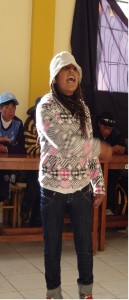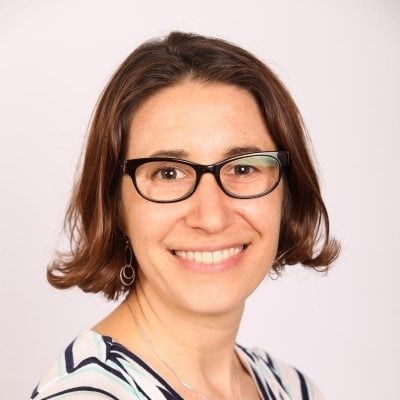This series on storytelling for justice is guest edited by Deji Olukotun.
Creating and sharing stories are powerful ways of shaping understanding. Where historically disenfranchised groups face deep societal prejudices, legacies of physical and symbolic violence, and the devaluing of their cultural identities, storytelling serves as a powerful method to challenge mainstream cultural norms. In Latin America and the Caribbean, Indigenous and Afro-descendant people in particular confront stories that reinforce stigma and discrimination. These stories take many forms and influence various audiences. AJWS’s partners Wayna Rap in Bolivia and LUNDU Centro de Estudios y Promoción Afroperuanos (LUNDU Center for Afro-Peruvian Studies and Promotion) in Peru are using innovative storytelling methodologies to define their communities’ cultural memory and express their reality on their own terms.
Racism and sexism in Peruvian media are pervasive, contributing to social exclusion and gender-based discrimination. From July 2009 to July 2010, for example, LUNDU produced a series of reports that revealed that print media contained 350 racist news items during that period, an average of little less than one news piece per day. LUNDU is responding through innovative cultural initiatives that seek to better understand racist and sexist ideologies and develop strategies to systematically dismantle them. By producing poetry, art, and radio programs, Afro-Peruvian youth shape understandings about their heritage and are increasingly able to voice their political and cultural concerns in public spaces.
Currently, LUNDU is organizing an essay contest to raise awareness throughout Peru about the United Nations International Year of the Afro-descendant. Topics include culture, identity, racial justice and Afro-Peruvian women. The initiative aims to increase visibility of Afro-descendant human rights and encourage action from a new generation of activists, and has already garnered significant support from different governmental sectors.

In Bolivia, Wayna Rap uses hip hop to enable youth to promote the collective rights of Indigenous youth, contest corporate rights violations and fight political corruption. The organization records original music, stages concerts, produces authorized graffiti, and celebrates Indigenous Quecha and Aymara culture. By using Quechua and Aymara in their hip hop lyrics and images from Indigenous sources in their graffiti, youth also define their cultural heritage. They influence public conversations around critical issues that affect them with stories about Indigenous rights and environmental justice. To interact with a broad audience, Wayna Rap produces videos featuring its music, including a video presented at the 2009 UN Climate Change Conference in Copenhagen.
Through their lyrics, Wayna Rap members also analyze the social and economic status of Bolivian women. Youth develop an artistic and political voice while publicly advocating for increased awareness about gender issues.
Making a story and the act of telling a story allow youth to question themselves and society. Through creating art, youth in Wayna Rap and LUNDU’s programs personally analyze the impact of exclusion on their lives. They create images and cultural identities that allow them to internally dismantle stereotypes produced by the mainstream. They publicly “activate” this process of deconstruction when they tell their stories through their art. The act of sharing a story is an act of civic and political participation that offers the potential to engage others.
“detesto las miradas que me echan en la calle / solo tú tienes la capacidad de entender / por qué hay lagrimas en mi mirada / entre nosotros, todo es intencional”
“I hate the looks they throw me on the street / Only you have the capacity to understand / Why there are tears in my gaze / Between us, everything is intentional”
– Monica Carrillo, Director of LUNDU
AJWS’s work in countries and communities changes over time, responding to the evolving needs of partner organizations and the people they serve. To learn where AJWS is supporting activists and social justice movements today, please see Where We Work.

